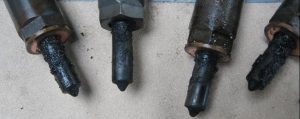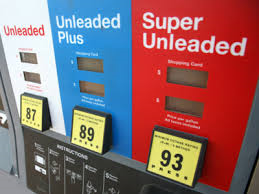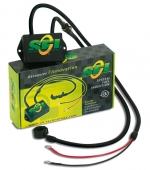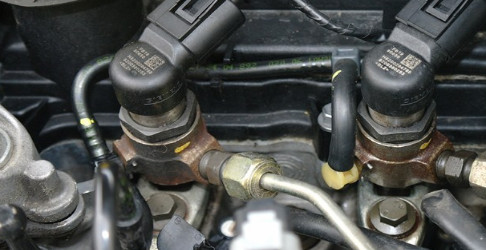 The fuel injector is an engine component located either at the opening of the cylinder or in the inlet manifold. It is a small nozzle into which liquid fuel is injected at high pressure. It works like a spray nozzle of a pressure washer. There are multi-injections, where there is one injector per cylinder, as well as single point injection, where there is one injector for all the cylinders.
The fuel injector is an engine component located either at the opening of the cylinder or in the inlet manifold. It is a small nozzle into which liquid fuel is injected at high pressure. It works like a spray nozzle of a pressure washer. There are multi-injections, where there is one injector per cylinder, as well as single point injection, where there is one injector for all the cylinders.
Today’s fuel injection systems are more powerful and produce a finer spray that is injected into the combustion chamber, which, in turn, improves performance and reduces emissions. The fuel injector is a costly and delicately precise instrument that rarely ever malfunctions. However, it is possible for them to become saturated and obstructed.
When the fuel injector gets clogged, it forms carbon deposits that reduce the flow of fuel and disrupt the spray pattern of the fuel injection. The shape and the density of the spray affects engine performance. Poor shape or density can cause the engine to idle, as well as cause acceleration to stutter thus leading to a lack of power. Carbon deposits and accumulated resin are the main sources of fuel injector saturation, which combined with high temperatures burn excess fuel inside the injector nozzles. This problem is exacerbated if the engine is being fueled by low quality gas.
Premium-grade fuel contains a cocktail of various additives derived from research centers as well as the joint efforts of oil companies and car manufacturers.
These additives include:
– detergents
– friction reducers
– cetane improvers for diesel engines
– anti-corrosion additives
– anti-foaming agents (defoamers) for diesel engines
The benefits of premium-grade fuels compared to fuels not containing additives are:
– the assurance that sensitive engine components (injectors, valves) stay clean.
– lower fuel consumption (thanks to friction reducers and detergents).
– cleaner emissions and reduced CO2 (thanks to detergents and lower fuel consumption)
noise reduction for diesel engines (thanks to cetane improver)
Today’s fuel injection systems are more powerful and produce a finer spray that is injected into the combustion chamber, which, in turn, improves performance and reduces emissions. The fuel injector is a costly and delicately precise instrument that rarely ever malfunctions. However, it is possible for them to become saturated and obstructed.
When the fuel injector gets clogged, it forms carbon deposits that reduce the flow of fuel and disrupt the spray pattern of the fuel injection. The shape and the density of the spray affects engine performance. Poor shape or density can cause the engine to idle, as well as cause acceleration to stutter thus leading to a lack of power. Carbon deposits and accumulated resin are the main sources of fuel injector saturation, which combined with high temperatures burn excess fuel inside the injector nozzles. This problem is exacerbated if the engine is being fueled by low quality gas.
Use an electronic SFI module to treat fuel

The SFI module is a device that improves combustion, protects the engine, reduces fuel consumption, and enhances engine performance. It reduces the viscosity of fuel via a high-frequency ultrasound treatment. It supports healthy injection as well as a more efficient and cleaner combustion.
http://www.powersystem.fr/FR/fiche_produit_sfi.php





